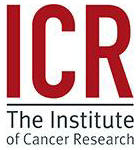Whole-genome scan helps select best treatment for childhood cancer
 A whole-genome scan to identify large-scale chromosomal damage can help doctors choose the best treatment option for children with neuroblastoma.
A whole-genome scan to identify large-scale chromosomal damage can help doctors choose the best treatment option for children with neuroblastoma.
From press release -
A whole-genome scan to identify large-scale chromosomal damage can help doctors choose the best treatment option for children with neuroblastoma, one of the most common types of childhood cancer, finds an international collaboration jointly led by The Institute of Cancer Research, London.
The researchers called for all children diagnosed with neuroblastoma worldwide to have a whole-genome scan as a standard part of their treatment.
Neuroblastoma, a cancer of the developing nervous system, is sometimes very treatable but other forms are highly aggressive, making the disease overall one of the leading causes of death from childhood cancer. As intense treatments can carry life-long side-effects, identifying the form is crucial in giving an accurate prognosis and deciding the most appropriate care.
Scientists examined the medical records of 8,800 neuroblastoma patients from around the world and found that several large-scale genetic faults were strongly linked to survival rates, and that a whole-genome scan would therefore be more effective at predicting prognosis than tests for individual genetic factors. The study is published in the British Journal of Cancer today.
Senior author Professor Andy Pearson, Cancer Research UK professor of paediatric oncology at The Institute of Cancer Research and a paediatric consultant at The Royal Marsden NHS Foundation Trust, said:
"Our study has found that every single patient diagnosed with neuroblastoma should have a whole genome assessment. The technology required to carry out these scans has become much more widely available and cheaper over recent years, and we believe most diagnostic labs in developed countries worldwide should have this capacity. These gene tests would help doctors provide a more accurate prognosis and decide the best treatment for their patients, which could potentially save more lives and spare other children the risk of serious side-effects."
The study builds on earlier work by the same international team, called the International Neuroblastoma Risk Group, who proposed classifying tumours based on 13 characteristics including the status of three genetic alterations (ploidy, MYCN and the segmental gene alteration 11q). Since the system was introduced four years ago, scientists' understanding of the genetic causes of aggressive neuroblastoma has improved and evidence has emerged of a number of other mutations that may be relevant to the disease.
The new study links two further segmental gene alterations - mutations that involve the duplication or deletion of large sections of DNA – to patient survival, specifically 1p status and 17q status. It further concluded that scanning the whole genome provided the most prognostic information, as it took all these factors into account along with less frequent but important genetic changes that also had an impact on survival. The team is now planning to update the official classification system to incorporate the new information, which should improve the personalised approach to therapy for neuroblastoma.


